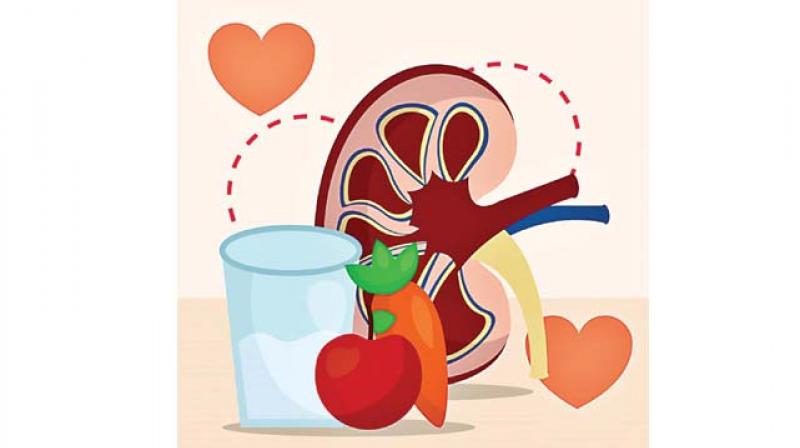For healthy kidney, keep salt intake in check

Bengaluru: There has been a steep rise in cases of chronic kidney disease across the globe and in India it is the eighth leading cause of death.
In India the prevalence of this disease has almost doubled in recent years and is expected to increase due to the various risk factors such as hypertension, diabetes, stress, obesity and other unhealthy eating habits.
Ahead of world kidney day on Thursday, city doctors suggest youngsters take up one week long ‘NoSugarNoSalt’ challenge to increase awareness among people regarding the monitoring of salt in their diet for a healthier kidney.
This year World Kidney Day is themed as ‘Kidney health for everyone, everywhere’, dedicated to spreading awareness about one of the most vital organs in the body.
A pinch of salt can make a huge difference, say experts. “By taking up a challenge like this, one can increase the ability of the kidneys to filter out toxic waste and improve its functioning and remain healthy for years,” said Dr Prashant Dheerendra, Nephrologist, Apollo Hospitals on Bannerghata Road.
He also said that eating salt every day without monitoring the intake raises the amount of sodium in your bloodstream and wrecks the delicate balance. It reduces the ability of kidneys to remove water.
“The result is a higher blood pressure due to the extra fluid and extra strain on the delicate blood vessels leading to the kidneys. Over time, this extra strain can damage the kidneys and cause kidney disease. If kidney disease is left untreated and the blood pressure isn’t lowered, the damage can lead to kidney failure,” Dr Prashant added.
According to the World Health Organisation (WHO), chronic kidney disease is one of the major reasons mortality among people over 30 years of age.
Pavithra N Raj, Chief Dietician, Columbia Asia Referral Hospital Yeshwanthpur said, “Salt consumption should be limited to a teaspoon a day which is usually 5 gm for a normal person without any comorbid condition. While some salt or sodium is required to maintain the water balance in the body, an excess amount of it can be harmful as it causes blood to hold fluid. Too much sodium also adds to the risk of high blood pressure, stroke, chronic kidney disease, and other severe health conditions.”

